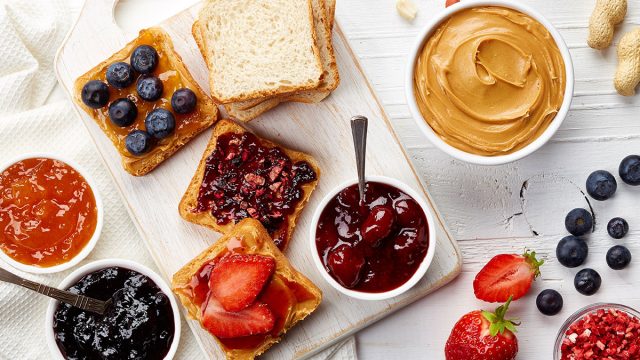Acid reflux also refers to gastroesophageal reflux disease or GERD. It is a condition in which stomach acid moves upward to the food pipe and may even damage the lining. It is a very common stomach condition, and in the US, more than 3 million cases are reported annually.
Those who suffer from GERD experience the condition twice a week. Acid reflux brings along symptoms such as a burning sensation around the chest and the inability to swallow food. The acid reflux occurring especially during the night can make it troublesome to manage proper sleep and even trigger coughing.
Table of Contents
Foods To Avoid
Experts believe that in addition to medication, several diet and lifestyle adjustments can really help to deal with this condition. There are certain foods that stay longer than usual in the stomach and take more time to get digested completely. Avoiding such types of food can reduce the risk of acid reflux.
1. Alcohol
Certainly, it is fun to be around friends. When going out for late-night parties with friends or on a dinner date, then think twice before taking alcohol. Experts believe that alcohol consumption may also trigger acid reflux.
With alcohol in the stomach, the food that is consumed alone is not processed until the body gets rid of alcohol. This can significantly increase the risk of experiencing acid reflux. If you are a regular drinker, then it might appear very hard to give up on alcohol.
You may also take professional support if you are really not sure where to begin from. All you would have to do is provide your data by filling an online form. The admission navigators of rehab centers will contact you in order to provide necessary information regarding treatment and insurance coverage. This will place you in a better position to make decisions.
2. Fried Food
It does not matter whether you are taking healthy fats or not so healthy fats. As long as you are eating fatty food rich in fats, you are likely to experience acid reflux. The reason behind it is related to the relaxation of the Lower esophageal sphincter. These are the muscles that separate the food pipe and stomach and also lock food in the stomach.
With a relaxed lower sphincter, there is a greater chance for food to move back to the food pipe and trigger GERD. Furthermore, fatty foods take time to digest completely. The longer the food stays in the stomach, the higher is its chance to move to the food pipe if someone is suffering from Acid reflux.
3. Dairy Products
Full-fat dairy products, though they are very nourishing and healthy, consumption may also trigger acid reflux. There is not just one reason behind it. Numerous factors increase the risk of acid reflux. Firstly, the high-fat content in dairy products may cause the lower sphincter to loosen up.
Many people, however, are sensitive to lactose that naturally occurs in milk, and this sensitivity could trigger acid reflux. You may switch to low-fat dairy products and even use cow’s milk to help you reap the health benefits without getting into trouble.
4. Chocolate
Eating an excessive amount of chocolates can also increase the risk of acid reflux. This is due to methylxanthine that naturally occurs in chocolates. Generally, two types of methylxanthine, cocoa, and bromine are present in chocolates.
These influence the nervous system and cause the lower sphincter to relax. The relaxation of the lower sphincter is directly associated with a greater risk of acid reflux. You should probably limit your chocolate intake if you are dealing with this stomach issue.

5. Carbonated Drink
Those bubbly drinks can really stir up esophageal distress. Carbonated drinks are acidic and have a greater chance to cause acid reflux. Furthermore, then it may also result in burping and bloating. Carbonated drinks are certainly not for those who are dealing with GERD.
One should look to replace such carbonated drinks with plain water flavored up with cucumber or lemon. This will not only make a healthy substitute for carbonated drinks, but it may also ease digestion. The carbonated drinks are sugary and are otherwise very unhealthy.
6. Spicy Foods
It is very common to experience acid reflux after consuming spicy food. Spicy food can irritate and inflame the already burning food pipe. On the other hand, it takes longer to process spicy food as compared to other food. The longer it takes to digest spicy food, the longer the food remains in the stomach, and resultantly the greater is the chance to deal with acid reflux.
7. Peppermint Tea
Peppermint tea generally plays a wonderful role in soothing upset stomach and irritable bowel movements. However, it may aggravate the symptoms of acid reflux for those who suffer from GERD.
In addition to its soothing effect on the digestive tract, peppermint tea may even cause the muscles of the lower sphincter to relax, and as a result, acid reflux can possibly occur. If you notice acid reflux after having peppermint tea, then tries avoiding it.
8. Eggs
You will be surprised to know that eggs and the little protein bombs are actually among the top food allergens. It means that many people are intolerant to these. The sensitivity or intolerance to certain food can result in acid reflux as a side effect.
If the acid reflux seems to get worse after egg consumption, then you should try avoiding its intake. In order to meet your protein requirement, you may use lean proteins and protein supplements in replacement to eggs.
9. Jam And Jelly
The combination of Jelly along with jam can be troublesome for those who deal with GERD as it is an acid-producing combination. The acid-producing food items can add to the causes of acid reflux and may even trigger it. Thus avoiding jam and jelly combo can help to avoid acid reflux.
Take Away
There are a number of foods with similar science that can trigger and even ignite acid reflux. Foods that are either acid-producing or tend to relax the lower sphincter can definitely result in acid reflux. It may also occur as a side effect of food sensitivity or intolerance.





